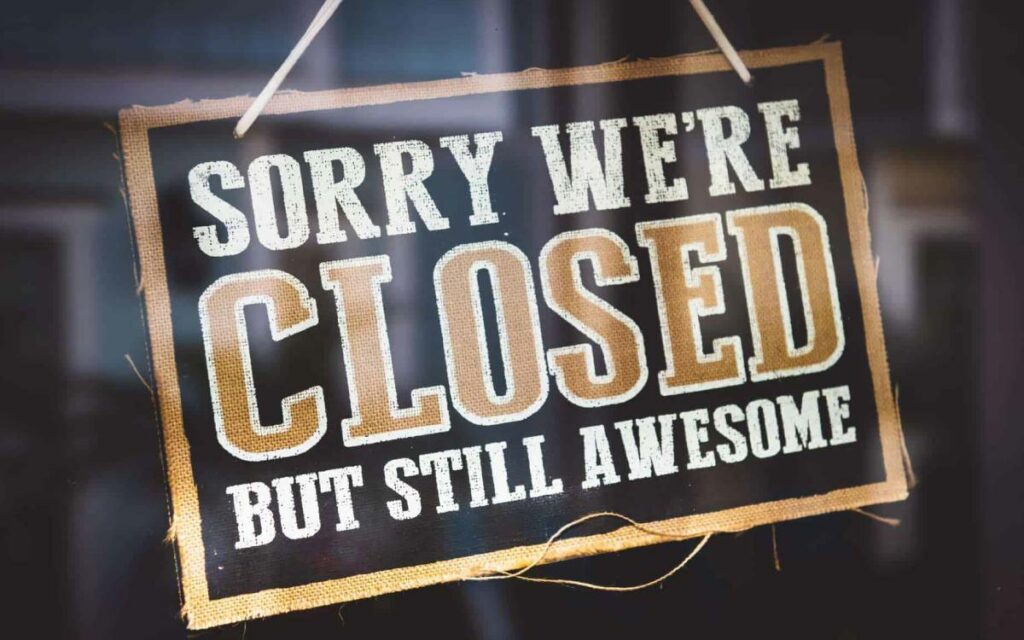
Where are we at so far in 2021?
As likely everyone is aware, when Ontario Regulation 780/20 came into effect on Dec. 26, 2020, Ontario entered the “Grey Zone” – aka our second province-wide lockdown. Southern Ontario (27 regions including Niagara) for 28-days and Northern Ontario for 14-days (7 regions) if all goes to plan.
With the lockdown we have closures of businesses similar to those that occurred in March 2020 with a few improvements for employers who are retailers, restaurants, bars and distilleries. That is employers who operate businesses that are being disproportionately and negatively impacted by the COVID-19 lockdown rules.
All employers that remain open during the lockdown are required to prepare and make available a safety plan. Also, if open to the public they must follow capacity limits by being able to maintain a physical distance of at least two metres from every other person and limit the total number of persons at any one time to 25% to 50% capacity depending on the total floor area.
Employers in all industries are again being asked to make every effort to allow employees to work from home. Where they can’t, the Infections Disease Emergency Leave (IDEL) under the Employment Standards Act (ESA) has been extended to July 3, 2021.
The extension of IDEL occurred by Ontario Regulation 765/20 on Dec. 17, 2020 proactively and prior to the Christmas and New Year’s holidays providing peace of mind to employers and employees alike. However, while all but currently deemed essential businesses are closed and employers remain protected from deemed termination claims for the statutory minimums of termination and severance pay under the ESA during the lockdown (and what I am hopefully assuming is deemed a recovery period), employers remain unprotected in relation to the much higher common law claims of constructive or wrongful dismissal when required to temporarily lay off their employees once again – or worse yet, permanently.
To defray the negative impact of the lock down on small employer is the Ontario Small Business Support Grant that provides a one-time grant of $10,000 to $20,000 to eligible small business owners. Eligible small businesses currently include those that have fewer than 100 employees who are required to close or significantly restrict services due to the lockdown and have experienced a minimum of 20% revenue decline in April 2020 compared to April 2019.
What businesses are allowed to stay open and how have the lockdown rules changed?
With the NFL Super Wild Card weekend on the horizon, indoor organized public events and social gatherings are restricted, except with members of the same household. Individuals who live alone may consider having exclusive close contact with one other household.
Indoor and outdoor “dining” is prohibited at bars and restaurants but you can get take out, drive-through, and delivery. I write “dining” as recall that Ontario made a permanent changed in December 2020 to allow licensed restaurants and bars to start selling alcohol with take-out and delivery food as a “relief measure”. Meaning that individuals who wish to support their favourite restaurants can do so by ordering pickup for their at home celebrations on game day.
Additionally, alcohol distillers are permitted to deliver their own products, process on-line sales for curb-side pick up or to sell their products at farmers markets.
For stores that primarily sell food, they can continue to operate at 50% capacity for in-store shopping and through curb-side pick up and delivery.
Hardware stores and pet food stores are not deemed essential under the new lockdown rules but are permitted to sell through curbside pickup and delivery. This is the same for most retail settings. In-person shopping is prohibited with curbside pickup and delivery is allowed. Exceptions are pharmacies who also permit in-person shopping at 50% capacity for in-store shopping and optical stores that sell prescription eyewear to the public.
Others exemptions are discount and big box stores as well as liquor and beer stores who are permitted to operate at 25% capacity for in-store shopping; businesses that sell, repair or provide essential maintenance for motor vehicles; and retail stores operated by telecommunication companies for repairs and technical support. Unfortunately for the elderly and others who mall-walk in winter weather, indoor access to shopping malls is restricted to patrons only to go by appointment to a designated pick-up area, to the food court for take-out orders, to essential stores such as safety supply or assistive/mobility/medical devices, aids and or supplies.
Hopefully before Superbowl Sunday we will be fully back to business of we all pitch in and do our part.

Sheryl L. Johnson brings a proactive, creative, and vibrant attitude to her labour, employment and human resource law practice. Sheryl has extensive experience in representing clients in both the provincial and federal jurisdictions on all matters relating to employment and labour law, including for example construction labour law, employment related civil wrongful dismissal, human rights, and labour board litigation; privacy, governance, statutory and regulatory compliance, and executive compensation matters; as well as conducting workplace training and workplace investigations. Sheryl is also an avid educator and writer, including authoring a bi-weekly business column in The Niagara Independent and the text: Sexual Harassment in Canada: A Guide for Understanding and Prevention. Sheryl enjoys in her free time giving back to the Niagara community. She is a member of the WIN Council, Chair of the Board of Directors for the Niagara Jazz Festival, Vice-President of the Board of Directors for the YWCA Niagara Region, Secretary of Big Brothers Big Sisters of Niagara Falls Board of Directors, a board member of the Niagara Home Builders Association, and a board member of the Women in Construction group of the Niagara Construction Association.




















